JCV/BKV Virus Quant Real-TM ,sacace-100t
43,438,265 تومان 36,198,554 تومان
Sacace™ JCV/BKV Virus Real-TM Quant ver. 19.03.2018 For in Vitro Diagnostic Use JCV/BKV Virus Real-TM Quant Handbook Real Time PCR kit for quantitative detection of JCV/BKV Virus REF V71-100FRT 100 Sacace™ JCV/BKV Virus Real-TM Quant ver. 19.03.2018 NAME JCV/BKV Virus Real-TM Quant INTENDED USE kit JCV/BKV Virus Real-TM Quant is an in vitro Real Time amplification test for quantitative detection of JC Virus and BK virus in biological material (whole blood, cerebrospinal fluid, urine). The kit is used to study biological material obtained from individuals suspected of progressing multifocal leukoencephalopathy, JC encephalopathy, meningitis, meningoencephalitis, encephalitis caused by the JC virus and BK-associated nephropathy. DNA is extracted from samples, amplified using real time amplification with fluorescent reporter dye probes specific for JCV/BKV and an exogenous Internal Control (IC) The Internal Control serves as an amplification control for each individually processed specimen and to identify any possible reaction inhibition. PRINCIPLE OF ASSAY kit JCV/BKV Virus Real-TM Quant is based on two major processes: isolation of DNA from specimens and Real Time amplification. Amplification results of JCV/BKV DNA and Internal Control are detected on different channels. Extraction of DNA from whole blood, cerebrospinal fluid, urine is performed in the presence of an exogenous internal control sample (IC), which allows to monitor all stages of the PCR test for each sample and to evaluate the effect of inhibitors on the final results of the PCR. The quantitative determination of JCV/BKV DNA is possible on the basis of a linear relationship between the initial concentration of the target DNA in the tested sample and the Ct. For the quantitative test, the amplification of DNA from the samples is carried out simultaneously with the DNA calibrators with a known concentration of DNA. Based on the results of the amplification of DNA calibrators, is made a calibration line that allows to calculate the concentration of the target DNA in the clinical samples. At the stage of amplification, three reactions are simultaneously performed in the same tube. The results of the targets are detected on 3 different fluorescence channels: Internal Control on FAM channel, JCV on Joe channel and BKV on ROX channel. Sacace™ JCV/BKV Virus Real-TM Quant ver. 19.03.2018 MATERIALS PROVIDED Reagent ml Quantity PCR-mix-1 JCV-BKV 1,2 1 vial PCR- buffer-FRT 0,6 1 vial TaqF polymerase 0,06 1 vial QS 1 JCV-BKV 0,2 1 vial QS 2 JCV-BKV 0,2 1 vial DNA-buffer (C-) 0,2 1 vial Internal control (IC)* 1,0 1 vial Negative control** 1,2 2 vials Positive control JCV-BKV*** 0,1 1 vial Contains reagents for 110 tests. * add 10 µl of Internal control (IC) to each sample/control during the DNA purification procedure directly to the sample/lysis mixture; ** must be used during the sample preparation procedure as Negative control: add 100 µl of C– (Negative control) to the tube labeled Cneg; ***must be used during the sample preparation as Positive Control of Extraction: add 90 µl of C– (Negative control) and 10 µl of Positive control JCV-BKV to the tube labeled Cpos. Please note that calculated concentration of positive control of extraction must fall in the expected range of quantification indicated in the DataCard. Sacace™ JCV/BKV Virus Real-TM Quant ver. 19.03.2018 MATERIALS REQUIRED BUT NOT PROVIDED Zone 1: sample preparation: • DNA extraction kit • Biological cabinet • Desktop microcentrifuge for “eppendorf” type tubes • Dry heat block • Vortex mixer • Pipettes • Sterile pipette tips with filters • 1,5 ml polypropylene sterile tubes • Biohazard waste container • Refrigerator, Freezer Zone 2: Real Time amplification: • Real Time Thermal cycler • Reaction tubes • Workstation • Pipettes (adjustable) • Sterile pipette tips with filters • Vortex mixer • Freezer, refrigerator STORAGE INSTRUCTIONS JCV/BKV Virus Real-TM Quant must be stored at – 20°C. The kit can be shipped at 2-8°C but should be stored at -20°C immediately on receipt. STABILITY JCV/BKV Virus Real-TM Quant is stable up to the expiration date indicated on the kit label. The product will maintain performance through the control date printed on the label. Exposure to light, heat or humidity may affect the shelf life of some of the kit components and should be avoided. Repeated thawing and freezing of these reagents should be avoided, as this may reduce the sensitivity. Components stored under conditions other than those stated on the labels may not perform properly and may adversely affect the assay results. QUALITY CONTROL In accordance with Sacace’s ISO 13485-Certified Quality Management System, each lot is tested against predetermined specifications to ensure consistent product quality. Sacace™ JCV/BKV Virus Real-TM Quant ver. 19.03.2018 WARNINGS AND PRECAUTIONS In Vitro Diagnostic Medical Device For In Vitro Diagnostic Use Only The user should always pay attention to the following: • Use sterile pipette tips with aerosol barriers and use new tip for every procedure. • Store extracted positive material (samples, controls and amplicons) away from all other reagents and add it to the reaction mix in a separate area. • Thaw all components thoroughly at room temperature before starting an assay. • When thawed, mix the components and centrifuge briefly. • Use disposable gloves, laboratory coats and eye protection when handling specimens and reagents. Thoroughly wash hands afterwards. • Do not eat, drink, smoke, apply cosmetics, or handle contact lenses in laboratory work areas. • Do not use a kit after its expiration date. • Dispose of all specimens and unused reagents in accordance with local authorities’ regulations. • Specimens should be considered potentially infectious and handled in a biological cabinet in accordance with appropriate biosafety practices. • Clean and disinfect all sample or reagent spills using a disinfectant such as 0.5% sodium hypochlorite, or other suitable disinfectant. • Avoid sample or reagent contact with the skin, eyes, and mucous membranes. If skin, eyes, or mucous membranes come into contact, rinse immediately with water and seek medical advice immediately. • Material Safety Data Sheets (MSDS) are available on request. • Use of this product should be limited to personnel trained in the techniques of DNA amplification. • The laboratory process must be one-directional, it should begin in the Extraction Area and then move to the Amplification and Detection Areas. Do not return samples, equipment and reagents to the area in which the previous step was performed. Some components of this kit contain sodium azide as a preservative. Do not use metal tubing for reagent transfer. Sacace™ JCV/BKV Virus Real-TM Quant ver. 19.03.2018 PRODUCT USE LIMITATIONS All reagents may exclusively be used in in vitro diagnostics. Use of this product should be limited to personnel trained in the techniques of DNA amplification (UNI EN ISO 18113-2:2012). Strict compliance with the user manual is required for optimal PCR results. Attention should be paid to expiration dates printed on the box and labels of all components. Do not use a kit after its expiration date. SAMPLE COLLECTION, STORAGE AND TRANSPORT JCV/BKV Virus Real-TM Quant can analyze DNA extracted from: • whole blood collected in either ACD or EDTA tubes; • cerebrospinal fluid (CSF): samples of CSF do not require preliminary preparation. It is necessary to concentrate the sample by centrifugation for 5 minutes at 10,000 g. Take out the supernatant leaving a sediment in the tube and about 100 μl of supernatant; • urine: by using a filtered tip transfer 1 ml of urine to sterile disposable 1.5 ml tube. Centrifuge for 5 minutes at 10,000 g. Take out the supernatant leaving a precipitate in the tube and about 100 μl of the supernatant. It is recommended to process samples immediately after collection. Store samples at 2–8 °C for no longer than 24 hours, or freeze at –20/80°C. Transportation of clinical specimens must comply with country, federal, state and local regulations for the transport of etiologic agents. DNA ISOLATION Any commercial DNA isolation kit, if IVD-CE validated for the specimen types indicated herein at the “SAMPLE COLLECTION, STORAGE AND TRANSPORT” paragraph, could be used. Sacace Biotechnologies recommends to use the following kits: DNA/RNA-Prep (Sacace, REF K-2-9) SaMag Viral Nucleic Acids Extraction Kit (Sacace, REF SM003) for cell free body fluids. Please carry out the DNA extraction according to the manufacturer’s instructions. Add 10 µl of Internal control (IC) to each sample at the beginning of the DNA extraction process. Sacace™ JCV/BKV Virus Real-TM Quant ver. 19.03.2018 PROTOCOL: Reaction volume = 25 µl 1. Prepare required quantity of tubes (N + controls) 2. Prepare the Reaction Mix. In a new sterile tube for each sample 10*N µl of PCR-mix-1 JCV/BKV, 5,0*N of PCR-Buffer-FRT, 0,5*N of TaqF polymerase. Vortex and centrifuge for 2- 3 sec. The Reaction Mix should be used immediately after preparation. 3. Add 15 µl of Reaction Mix and 10 µl of extracted DNA sample to appropriate tube. Mix by pipetting without making bubbles. 4. For each analysis it is necessary to include the following: • add 10 µl of extracted Positive control JCV-BKV to the tube labeled Cpos; • add 10 µl of extracted Negative control to the tube labeled Cneg; • add 10 µl of DNA-buffer (C-) to the tube labeled Cneg-amp; • add 10 µl of QS1 into two tubes each labeled Standard 1 (2 tubes); • add 10 µl of QS2 into two tubes each labeled Standard 2 (2 tubes). Amplification 1. Close tubes and transfer them into the Real Time PCR instrument. 2. Program position of the samples, controls and standards. 3. Program the Real Time PCR instruments* as follows: Step Temperature, °С Time Fluorescence channels Repeats 1 95 15 min – 1 2 95 10 sec – 45 60 25 seс FAM/Green, JOE/Yellow/HEX, ROX/Orange/TexasRed * For example Rotor-Gene™ 3000/6000/Q (Corbett Research, Qiagen), SaCycler-96™ (Sacace), CFX-96/iQ5™ (BioRad); Mx3005P™ (Agilent), ABI® 7300/7500/StepOne Real Time PCR (Applied Biosystems), SmartCycler® (Cepheid) Fluorescence is detected at the 2nd step (60 °C) in FAM/Green, JOE/Yellow/Hex/Cy3, ROX/Orange fluorescence channels. Fluorescence channel FAM JOE ROX Target region Internal Control (IC) (Artificially synthesized sequence) JCV (large T-antigen gene) BKV (large T-antigen gene) Sacace™ JCV/BKV Virus Real-TM Quant ver. 19.03.2018 INSTRUMENT SETTINGS Rotor-type instruments Channel Calibrate/Gain Optimisation… Threshold Eliminate cycles before More Settings/ Outlier Removal Slope Correct FAM/Green from 5 Fl to 10 Fl 0.03 5 10 % On JOE/Yellow from 5 Fl to 10 Fl 0.03 5 10 % On ROX/Orange from 5 Fl to 10 Fl 0.03 5 10 % On Plate-type instruments The threshold line should cross only sigmoid curves of signal accumulation of positive samples and should not cross the baseline; otherwise, the threshold level should be raised. Set the threshold at a level corresponding to 10-20% of the fluorescence level obtained in the last amplification cycle by standard QS2. For SaCycler-96 instrument set “Threshold” to 10 and set “Criteria for validity result” to 10% for both “bottom” and “top edge” in the “parameter analysis” window by clicking the button RESULT ANALYSIS The results are interpreted with the software of instrument through the presence of crossing of fluorescence curve with the threshold line. The calculation of the amount of JCV and BKV DNA copies in 1 ml of the test sample is carried out according to the formula: For example, if extraction used is DNA/RNA prep which starts extraction from 100 µl of sample, coefficient A will be 1. If extraction used starts from 400 µl of sample, coefficient A will be 100/400 = 0,25 Please note that Coefficient A for positive control of extraction is always equal to 1. Coefficient B is the copy number of Internal Control (IC) in 1 ml of the test material. The coefficient takes into account the loss of DNA during the extraction process. Values of the DNA concentration of calibrators and coefficient B are lot specific and are indicated in the Data Card included in the kit. Sacace™ JCV/BKV Virus Real-TM Quant ver. 19.03.2018 Interpretation of results Result Interpretation Invalid The value of Ct on FAM channel is absent or higher than the boundary value. It is necessary to repeat the PCR test of the sample, starting from the DNA extraction step. JCV and/or BKV DNA not detected The Ct value for JCV and/or BKV DNA on JOE and/or ROX channel is absent, while the Ct value on FAM channel is less than the boundary value. The result is interpreted as JCV and/or BKV DNA is not detected. Less than 1 x 103 copies/ml JCV and/or BKV DNA is detected below the linear range of the reagent kit. The result is interpreted as less than 103 copies of JCV and/or BKV/ml. X x 10y copies/ml The concentration value (copies/ml) is within the linear range of the reagent kit. The result is expressed as JCV and/or BKV DNA detected with concentration of X x 10y copies/mL. More than 1×108 copies/ml The JCV and/or BKV DNA is detected with a concentration higher than the linear range of the reagent kit. The result is interpreted as more than 1×108 JCV and/or BKV DNA copies/ml. If is necessary to quantify exactly the result, it is possible to dilute the extracted sample with the Negative Control (for example, 100 times) and repeat the testing from the amplification step. The obtained result must be then multiplied by the dilution factor of the sample. The result is considered reliable if the controls for DNA extraction and amplification are in accordance with the results in table below: Control Stage Fluorophore channel FAM JOE ROX PCE DNA extraction Ct value less than the boundary value Ct value less than the boundary value; the concentration value is within the range Ct value less than the boundary value; the concentration value is within the range NCE DNA extraction Ct value less than the boundary value No Ct value No Ct value NCA PCR No Ct value No Ct value No Ct value QS1 PCR Ct depending on the concentration Ct depending on the concentration Ct depending on the concentration QS2 PCR Ct depending on the concentration Ct depending on the concentration Ct depending on the concentration The concentrations of the QS1 and QS2 are lot specific and reported on the Data Card included in the kit. The boundary values are indicated in the following table: Boundary value of the cycle threshold, Ct Sample Rotor-type instruments Plate-type instruments Green Yellow Orange FAM JOE/HEX/Cy3ROX/TexasRed NCE <29 absent absent <32 absent absent PCE <29 <32 <32 <32 <34 <34 DNAbuffer absent absent absent absent absent absent Test samples <29 <36 <36 <32 <41 <41 Sacace™ JCV/BKV Virus Real-TM Quant ver. 19.03.2018 PERFORMANCE CHARACTERISTICS Analytical specificity The analytical specificity of the primers and probes of the kit JCV/BKV Virus Real-TM Quant was validated with negative samples. They did not generate any signal with the specific JCV and BKV primers and probes. The analytical specificity of the kit was also tested with the DNA of the following microorganisms: Adenovirus, Bocavirus, Parvovirus B19, Rubella virus, Enterovirus, Metapneumovirus, Coronavirus, Rhinovirus, Parainfluenza virus, HSV1 (Herpes simplex virus type 1), HSV2 (Herpes simplex virus type 2 ), CMV (cytomegalovirus), EBV (Epstein-Barr virus), VZV (Varicella-Zoster virus), HHV6 (herpesvirus type 6), HHV7 (herpesvirus type 7), HHV8 (herpesvirus type 8), HBV (virus Hepatitis B), HCV (hepatitis C virus), HIV (human immunodeficiency virus), influenza A virus, influenza B virus, respiratory syncytial virus, HPV 6, 11, 16, 18, 31, 33, 39, 45, 51, 52, 56, 58, Staphylococcus aureus, Staphylococcus epidermidis, Staphylococcus haemolyticus, Staphylococcus hominis, Streptococcus agalactiae, Streptococcus pyogenes, Streptococcus pneumoniae, Enterococcus faecium, Enterococcus faecalis, Acinetobacter baumannii, Klebsiella pneumoniae, Pseudomonas aeruginosa, Escherichia coli, Listeria monocytogenes, Neisseria meningitidis, Haemophylus influenza, Chlamydia (Chlamydoplila) Pneumonia, Mycoplasma pneumonia, Moraxella catarrhalis, Stenotrophomonas maltophilia, Mycobacterium tuberculosis complex, Proteus mirabilis, Toxoplasma gondii, Candida albicans, Candida glabrata, Candida krusei, Cryptococcus neoformans, Pneumocystis jirovecii, and human genomic DNA. When testing the DNA samples of the above microorganisms and human DNA, nonspecific reactions were not detected. The potential cross-reactivity of the kit JCV/BKV Virus Real-TM Quant was tested against the group control. It was not observed any cross-reactivity with other pathogens. The specificity of the kit JCV/BKV Virus Real-TM Quant was 100%. Analytical sensitivity The kit JCV/BKV Virus Real-TM Quant allows to detect JCV and BKV DNA in 100% of the tests with a sensitivity as specified in the below table: Clinical material Sample extraction volume, μl Extraction kit Detection limit, copies/ml Linear range, copies/ml Whole blood 100 DNA/RNA-Prep 5×102 1×103 – 1×10 Cerebrospinal fluid 8 Urine Sacace™ JCV/BKV Virus Real-TM Quant ver. 19.03.2018 TROUBLESHOOTING 1. Positive extraction control (PC), with the Ct on FAM and/or JOE and/or ROX channels is absent or exceeds the boundary value. It is necessary to repeat the PCR for all samples starting from the DNA extraction step. 2. The concentration of Positive control JCV/BKV does not fall within the range indicated in the Data Card. It is necessary to repeat the PCR for all samples, starting from the DNA extraction step. 3. Negative extraction control (NCE), with the Ct on JOE and/or ROX channels. Probable contamination with amplification products or contamination of the reagents at any stage of the PCR. It is necessary to identify and eliminate the source of contamination and to repeat the PCR for all samples, starting from the DNA extraction step. 4. Negative control of amplification (NCA), with the Ct on FAM and/or JOE and/or ROX. Probable contamination with amplification products or contaminations of the reagents, at any stage of the PCR test. It is necessary to identify and eliminate the source of contamination and to repeat the amplification step for all samples. 5. Calibrators QS1 and QS2 with absent values of Ct for any of the indicated fluorescence channels. Repeat amplification and detection for all samples. 6. When carrying out a quantitative PCR analysis, the correlation coefficient R2 of the standards is less than 0.98. It is necessary to take care during the PCR preparation. Pipette the correct amount in both the repetitions of standards and. If the results are unsatisfactory, it is necessary to repeat the amplification and detection for all samples. 7. The value of the threshold cycle is determined for the sample under study, but there is no characteristic exponential rise of the fluorescence curve (the graph is approximately a straight line). It is necessary to check the set up of the selected threshold line level or baseline parameters and if necessary re-amplify and detect the sample. Sacace™ JCV/BKV Virus Real-TM Quant ver. 19.03.2018 KEY TO SYMBOLS USED * SaCycler™ is a registered trademark of Sacace Biotechnologies * CFX™ and iQ5™ are registered trademarks of Bio-Rad Laboratories * Rotor-Gene™ is a registered trademark of Qiagen * MX3005P® is a registered trademark of Agilent Technologies * ABI® is a registered trademark of Applied Biosystems * SmartCycler® is a registered trademark of Cepheid Sacace Biotechnologies Srl via Scalabrini, 44 – 22100 – Como – Italy Tel +390314892927 Fax +390314892926 mail: info@sacace.com web: www.sacace.com List Number Caution! Lot Number Contains sufficient for tests For in Vitro Diagnostic Use Version Store at NCA Negative Control of Amplification Manufacturer NCE Negative control of Extraction Consult instructions for use C+ Positive Control of Amplification Expiration Date IC Internal Control
درخواست محصول
.فقط مشتریانی که این محصول را خریداری کرده اند و وارد سیستم شده اند میتوانند برای این محصول دیدگاه(نظر) ارسال کنند.
محصولات پیشنهادی
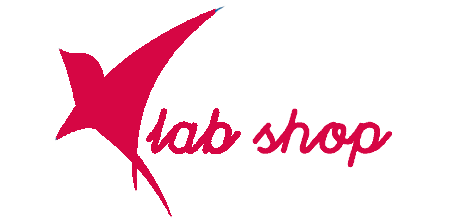










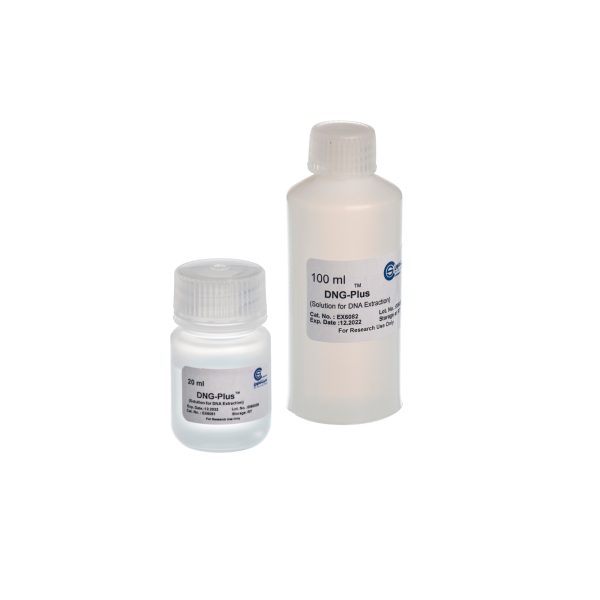
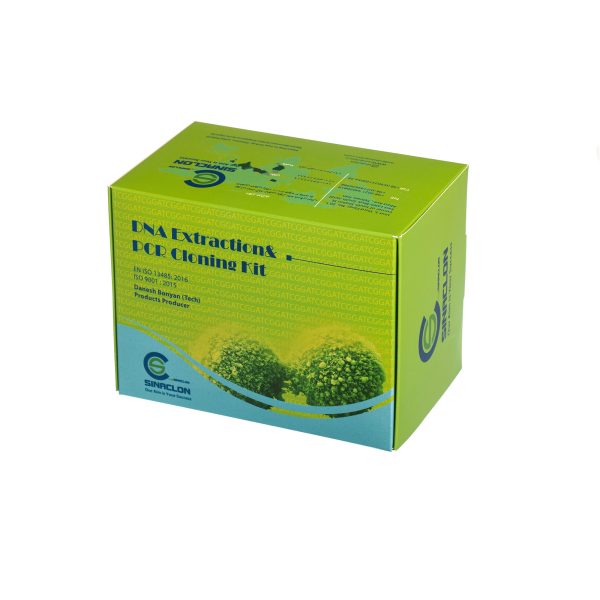
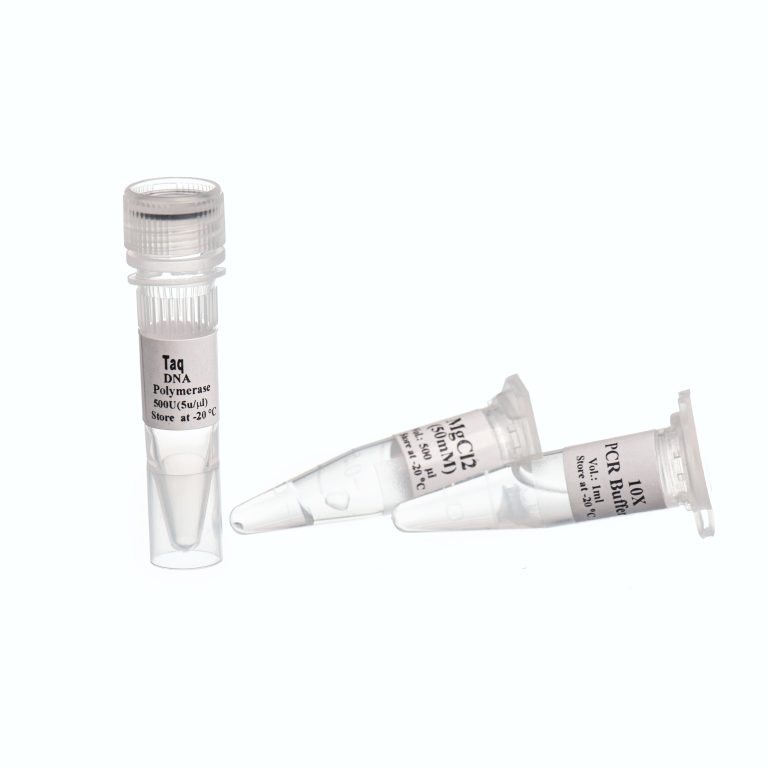
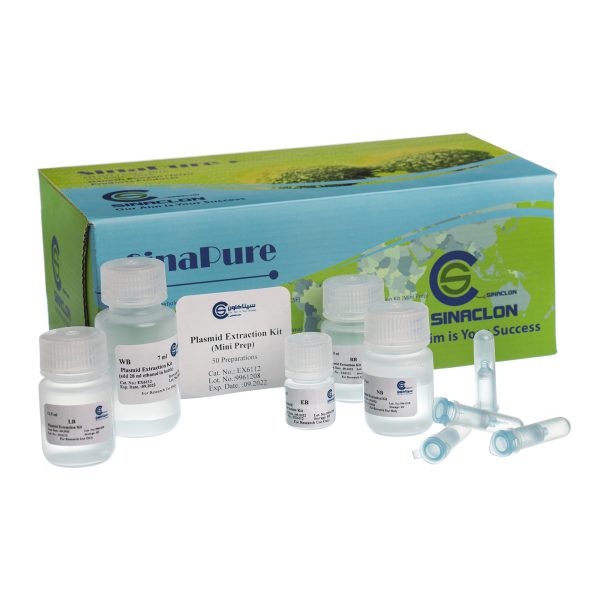
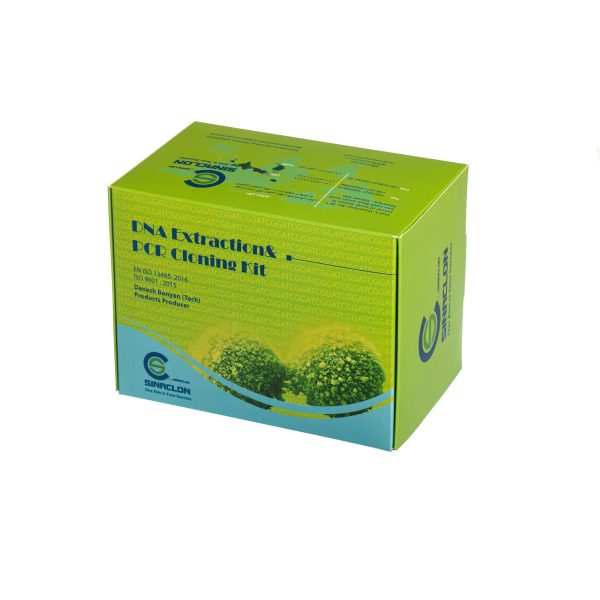
نقد و بررسیها
هنوز بررسیای ثبت نشده است.